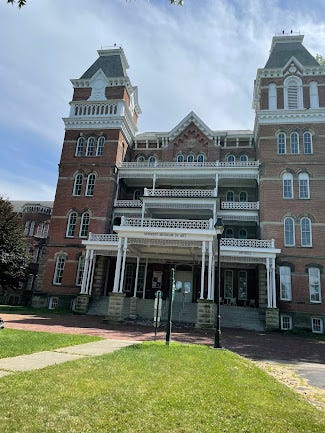Whippoorwill Sing
Coming Late Spring 2026 from Thorncraft Publishing
College-dropout Atlas faces the daunting task of saving the family home in a rundown Appalachian town, where she finds work in a museum housed in a former sanatorium. While there, her job becomes more complicated when she must face the ghosts of her own family’s past in order to ensure that it has a future.
Growing up in a rural community can feel stifling—never enough room to grow, to start fresh. Whatever new identity you want has to be achieved while facing the old one every single day—or at least being shadowed by its ghost.
Many folks think of Appalachia as simply a poverty-stricken region filled with hillbillies—racism, sexism, abuse. But the Appalachia I grew up in doesn’t look like that. Do those things exist there? Sure. But those things exist everywhere.

Atlas Whitaker, the protagonist of Whippoorwill Sing, has followed me around for a few decades, waiting for her story to be written. I wrote and rewrote the narrative for years, always seeing a different outcome for Atlas until only one made sense: this one.
I’ve set the main storyline of Whippoorwill in a fictional version of the santorium-turned-museum where I worked for my senior year at Ohio University in Athens, Ohio: Lin Hall, located in a place known as the Ridges:
The halls, marble floors, and outbuildings in Whippoorwill are inspired by the eerily quiet evenings and weekends working in the Kennedy Museum of Art as a weekend manager and docent as part of my work study role on campus.
Atlas’s journey will take her through these ghost-filled halls, where she will face not only her own demons but those of her family’s past, as well, for only in facing the darkness can we find the light.
Whippoorwill Sing, coming next spring from Thorncraft Publishing.


